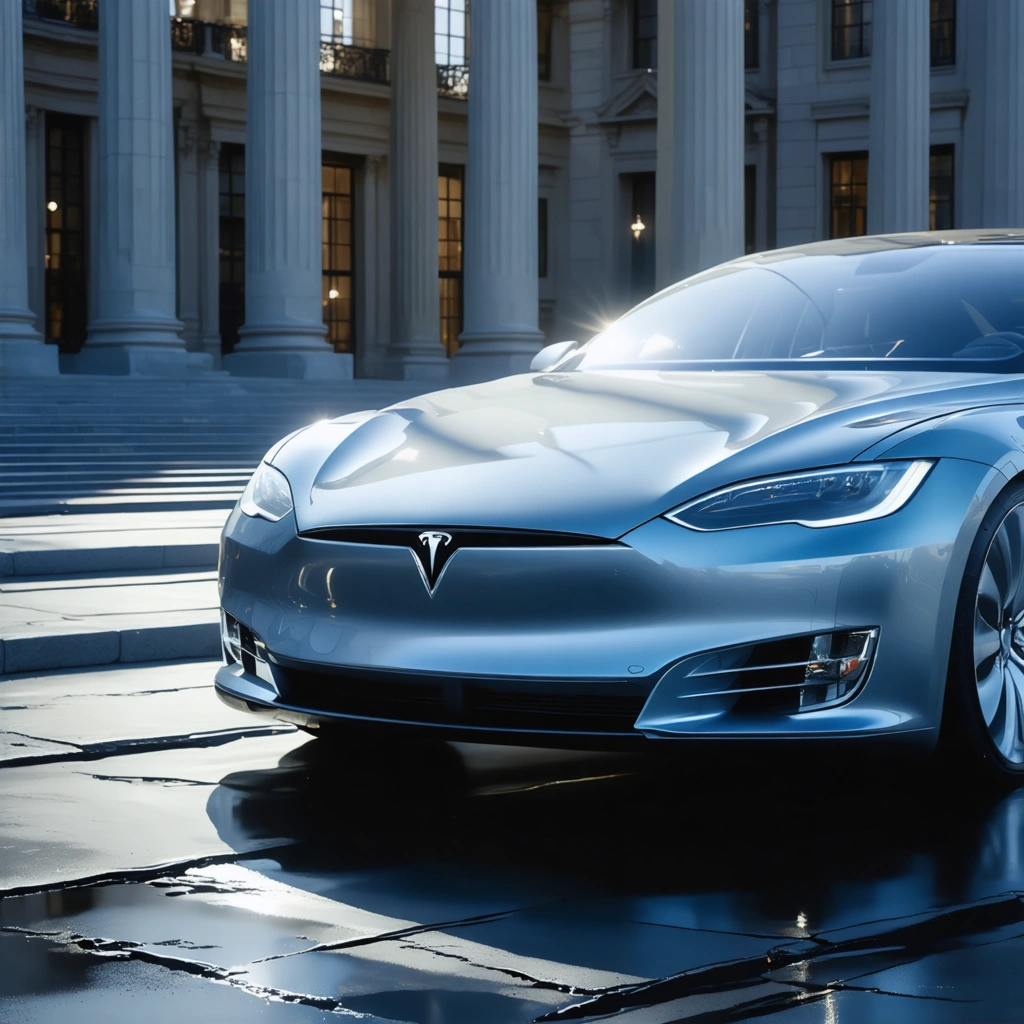
Introduction: The Convergence of Politics and Business
The recent statements by President Donald Trump, in which he condemned what he described as an “illegal” boycott of Tesla—along with his pledge to purchase a brand new Tesla vehicle—have intensified discussions around the intersection of politics, business strategy, and technological innovation. At a press conference held at the White House, Trump’s remarks quickly drew attention, not only because of his direct support for Tesla and its CEO, Elon Musk, but also the political undertones behind labeling acts of violence targeting the company’s showrooms as domestic terrorism. This article carefully examines these developments, the controversial narrative of the “Radical Left” as posited by the president, and their broader implications for market confidence and regulatory oversight.
Trump’s Assertion and Its Business Implications
The Claim of an “Illegal Boycott”
During the White House event, President Trump claimed that a boycott against Tesla was not only unjustified but also illegal. The president’s language was direct and designed to rally support from a segment of the populace that champions free-market dynamics combined with a resistance to policies perceived as overly critical of certain business magnates. Key aspects of this assertion include:
- Political Allegations: Trump accused political adversaries of orchestrating a boycott against Tesla, framing the narrative as a politically motivated attack.
- Market Impact Concerns: Tesla recently witnessed significant fluctuations, including its worst share price fall in nearly five years. The president’s support aims at restoring investor and consumer confidence.
- Judicial and Regulatory Implications: If the boycott is framed legally as something that could verge on criminal interference, there might be debates in legal circles about the limits of political expression and protest in a free society.
Domestic Terrorism Label and Showroom Violence
The president also stated that any physical violence directed at Tesla showrooms should be classified as domestic terrorism. This strong language serves multiple purposes:
- Diplomatic Messaging: By referring to these actions as domestic terrorism, the administration intends to send a clear message to potential agitators that such violence will be met with severe legal consequences.
- Business Safety and Security: Ensuring the safety of Tesla’s operational outlets is paramount, both for company stability and for protecting investment in innovative technology.
- Public Perception Shift: The declaration is also aimed at shifting public focus towards the perils of politically motivated disruption against companies that play a vital role in the green energy economy.
Strategic Implications for Tesla and Broader Markets
Elevating Tesla’s Brand Amid Political Controversy
The intersection of political endorsements and corporate strategy is a delicate balancing act. For Tesla, which is already at the forefront of the electric vehicle revolution, endorsement by a prominent political figure carries benefits and risks:
- Brand Loyalty and Advocacy: The backing can galvanize loyal customer bases that align with certain political ideologies and spur further market interest.
- Shareholder Confidence: Positive political commentary might stimulate investor interest, particularly when contrasted with previous share price declines. The company could experience a period of renewed market optimism if perceived as being backed by influential figures.
- Consumer Demand: A segment of the market that values endorsements from political leaders may see Tesla products as symbols of a broader socio-economic narrative, reinforcing the brand’s image as innovative and resilient.
Business Strategy in a Politically Charged Environment
For businesses generally—and Tesla in particular—the business environment is becoming increasingly infused with political rhetoric. Companies must now navigate a complex web where political opinions are interlaced with market performance. Key strategic considerations include:
| Aspect | Political Influence | Business Outcome |
|---|---|---|
| Investor Sentiment | Can be shaped by political endorsements or condemnations | Positive rhetoric may lead to increased capital flows |
| Consumer Perception | Political statements can alter brand image | Bolster the company’s position as a market innovator |
| Market Stability | Political controversies can introduce market volatility | A stable strategy may mitigate rapid fluctuations |
Business leaders are now tasked with reconciling political narratives with corporate strategies. For instance, companies may adopt the following approaches:
- Enhanced Communication Strategy: Crafting messages that clarify the company’s values while transparently addressing political commentaries impacting the business.
- Risk Management: Developing contingency plans for periods marked by heightened political tensions and ensuring robust security measures are in place at physical locations.
- Stakeholder Engagement: Actively engaging with diverse stakeholders—from investors to consumers—to explain strategies and counteract any adverse rumors.
Future Outlook: Balancing Innovation and Politics
Emerging Trends in Technology and Political Dynamics
Looking ahead, the relationship between emerging technologies and political ideologies is likely to intensify. Tesla, as a leader in electric vehicle technology, serves as an excellent case study. Future trends may include:
- Integration of Political Narratives with Innovation:
Companies might increasingly embed political narratives within their brand stories to appeal to a broader base of supporters. This could enhance both public awareness and market reach, albeit with the inherent risk of alienating segments of the consumer base.
- Digital Transformation in Response to Political Unrest:
With the advancing digital economy, companies may leverage technology to better manage public relations crises and safeguard operational processes. This could involve digital security measures, online customer engagement platforms, and data-driven decision-making strategies.
- Regulatory and Legal Evolution:
Critically, the legal classification of acts such as violent protests or boycotts may undergo significant revisions. Regulatory bodies could introduce clearer guidelines that reconcile political expression, consumer freedom, and business rights.
Conclusion: Navigating the Crossroads of Controversy and Innovation
The statements made by President Trump, particularly in support of Tesla and its overarching innovation narrative, underscore the increasingly complex interplay between political ideology and business strategy. As companies like Tesla continue to navigate turbulent political waters and economic uncertainties, a dual focus on technological advancement and measured political engagement appears imperative. By adopting robust risk management strategies and engaging in transparent, value-based communication, businesses can harness political narratives to reinforce their market positions, even amidst controversy.
In summary, the landscape of modern business is evolving rapidly. The ability to balance political sentiment with corporate growth and innovation is not just a strategic advantage—it is a necessity for sustaining long-term success in a global market defined by both technological breakthroughs and powerful political rhetoric.




